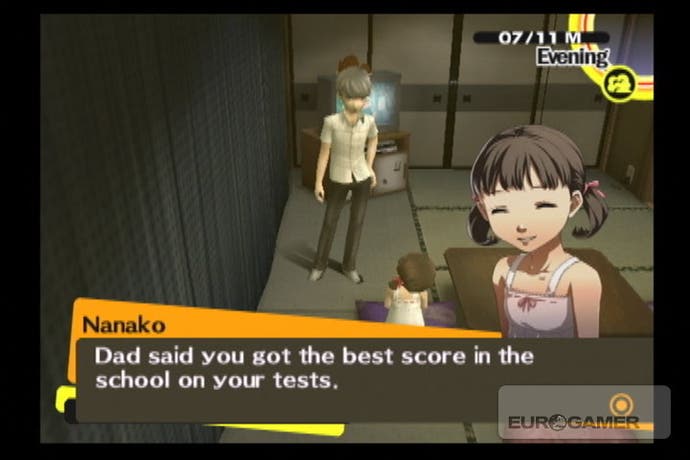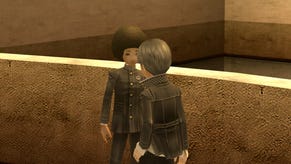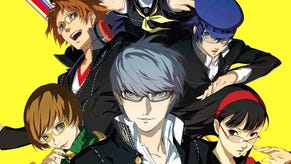Shin Megami Tensei: Persona 4
Old school.
If you're familiar with Persona, all you need to know about the latest instalment is a brief checklist of changes and improvements: direct control over team-mates in battle, a range of themed dungeons replacing Tartarus, Persona 3's single tower, and a welcome shift in setting from the city to the countryside.
If you don't know Persona, things are a little more complex: this is Harvest Moon through a glass darkly, or Animal Crossing with sex crimes - a foppish blend of dungeon-crawling RPG and convoluted social sim, dressed up in David Bowie's mid-seventies wardrobe and set to the tune of some radiantly bizarre pop-jazz hybrids. If that sounds a little too much to take in, don't panic: despite the daunting concept, now is just about the perfect time to hop on this particular school bus, as Persona 4 is stylish, clever, and surprisingly approachable.
Newcomers will find plenty of wilful surprises, not least the game's opening two hours, which give you little to do but plod through reams of text as the story shuttles you from one cut-scene to another, occasionally flinging in thirty seconds of anime, while painstakingly piecing together a large cast and simple mystery one atom at a time. Your only duties during this period, besides pressing the circle button to inch events forward by a single sentence, lie with occasionally trying out an attack move, or, when directly questioned, selecting one of three interchangeable platitudes as a response, most of which have no effect on how things unfold.
But such handholding isn't purely introducing you to Persona 4's mechanisms - despite its hardcore credentials, they're largely traditional and admirably clear-headed. What it's actually doing is syncing you with the game's internal rhythms, bringing you in close so you can hear its pulse.

And even after the early grip eases, Persona remains an RPG at its most politely autocratic - a world in which you follow the designers' quietly-stated demands and fit your life around their unwavering schedule, deepening friendships, taking after-school jobs and joining social clubs when instructed to, in order to level up enough to beat regular challenges. If modern RPGs tend to foreground choice, Persona 4 is about obedience: it's steering and you're pedalling - but if that sounds like a fairly raw deal, it simply highlights why the appeal of a game can never be reduced to the design of its machinery.
The story's simple but suggestive. You've moved from the city to the rural community of Inaba to live with your uncle for a year. Uncle Dojima's both a stressed-out family man and a cop of the hardboiled quips and loosened-tie variety, and as the game kicks off, he's knee-deep in the mysteries of a local murder. As the plot deepens and the bodies start to pile up, things take a supernatural turn as school friends alert you to the existence of the Midnight Channel - a secret world lurking on the other side of television screens, which seems to offer a glimpse of the murderer's next target - as well as an opportunity to save them, by stepping inside and exploring labyrinthine dungeons, each themed to that particular victim's internal struggles.






